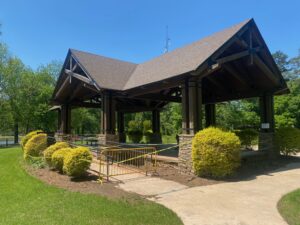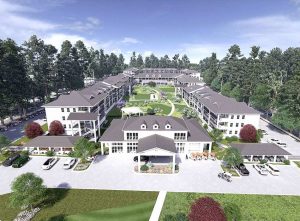If Peachtree City officials want to completely duck a tax increase and avoid using cash reserves, they will have to cut $1.2 million from next year’s budget, according to Councilman Eric Imker at Friday’s council retreat.
Imker pointed out that the projected $757,000 shortfall in the staff model for 2011 included a .26 mill property tax increase, equivalent to roughly $450,000.
“It’s about $1.2 million we’re either over-expending or under-taxing,” Imker said. “So whatever we need to do to make that budget balance, we’re $1.2 million short … That’s the target now for solving.”
The 2011 budget includes no raises for city staff and projects no increase in expenses at all, said City Finance Director Paul Salvatore. It will be up to the City Council to determine how to plug the $1.2 million gap, whether by further budget cuts, use of cash reserves, a property tax increase or a combination of those.
The city is projected to end the current budget year by using $451,000 to balance the budget, lowering its cash reserves to 34 percent of the budget. The goal is to have that figure at a minimum of 20 percent.
The city is already stretching its budget by $1.5 million by using remaining revenues from the 2004 transportation special purpose local option sales tax for street and cart path maintenance and improvements.
Mayor Don Haddix has said he thinks the city can’t afford cutting more staff without affecting service levels. But resident Robert Brown said he thinks the city needs to conduct an efficiency study so it could firmly know whether staffing levels were appropriate or not.
Brown, who has done such work for governmental entities at the federal level, gave as an example the implementation of charging for golf cart permits several years ago.
Brown noted that no new city staffers were hired for the task so the city absorbed the work with existing employees. That showed that there were some hours in staff’s schedules that were being spent on non-critical tasks or on anything, he said. “How many more examples are there like that in the city? I don’t know,” Brown said.
Resident Tim Lydell said he thinks the city needs to perform an assessment of the work conducted by city workers, some of which is merely processing paperwork.
The city needs to determine “what will the people of Peachtree City do without as opposed to what they really want. I think you are lacking that,” Lydell said. “… Let’s think about trying to get back to the basics.”
Lydell said he was also concerned about the long-term effect of the city’s defined benefit pension plan. He suggested the city could buy out employees’ defined benefit plans and change its retirement offerings to keep future expenses from getting out of control.
Mayor Don Haddix assured Brown and Lydell that the city has already looked into those suggested options.
“We haven’t been sitting back and doing nothing,” Haddix said. Resident Steve Thaxton said he preferred the city to avoid any tax increases and control costs.
Meanwhile the city is also dealing with a revenue shortfall in the current fiscal year that’s projected at $621,000. As a result, City Manager Bernie McMullen has ordered all departments to develop 2.5 percent in cuts from their budgets, which will be discussed at the end of the retreat 2 p.m. Saturday.
The worst shortfall this year for city revenues comes from recreation program fees, which are down by $200,000 from expectations, the city documents show.
The city has also taken hits in electric franchise tax ($139,000); interest earnings ($148,513); city court fines ($128,500) and building permits ($113,052).
Salvatore noted that the city will be addressing some suggestions in the area of the recreation revenues. He also noted that staff would investigate why there was a dip in the electric franchise revenues, which was a 9 percent decrease from last year.
Despite the shortfalls, there has been some good news from the city’s sales tax revenues, which are a bit over 4 percent ahead of last year’s revenues through Jan. 2010, Salvatore said.
The council’s two-day yearly retreat for planning was scheduled to conclude March 13.










Leave a Comment
You must be logged in to post a comment.